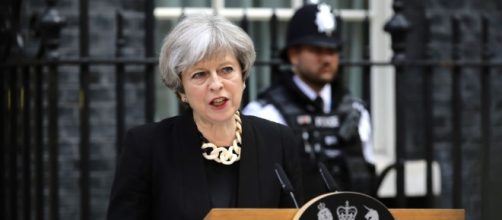Whilst the media outrage over the attack and of course rightly send their condolences to those who have either lost their lives or know someone who has lost their life. So far, the London attack has not been attributed to ISIL and the attackers have yet to be named. However, reports so far suggest they were radicalised Islamists. Addressing the problem must start with recognising two aspects.
Firstly, there is a problem within the Islamic nations that do little stop radicalisation, secondly, the UK’s role over the last century in cultivating the environments that have allowed these despots to gain power.
A plan to late?
Theresa May came out and immediately stated that they must be dealt with straight away and announced a 4-point plan. However, she had 6 years as Home Secretary to do something about it but has failed at every attempt. her statement has been condemned with a former police officer accusing the government of lying about extra police on the street and that the cuts made by theresa May herself have caused a crisis within the police force.
He stated on Sky News, “they’re not extra, they are officers that have had their rare leave days cancelled. They have had their 12-hour shifts, that are done routinely, now extended to 16-hours. They are being drawn from other areas”. He goes onto say “we saw a brilliant response in London, here last night, we saw it in Westminster, a month or so ago.
We saw it in Manchester a couple of weeks ago. If this had happened anywhere else, we would not be seeing that response. It is threadbare elsewhere in the country”.
Cross-party coordination and a clear understanding
Tackling an issue such as extremism needs cross-party cooperation and a complete change, Theresa May’s plan misses fundamental issues of tackling extremism. Firstly, The Guardian has reported the inquiry into foreign funding and support of jihadi groups, authorised by David Cameron, may never be published. The report primarily focuses on Saudi Arabia, whom the PM met with just a few months ago. The inquiry is into revenue streams for extremist groups operating in the UK, but the Home Office have said that the report is incomplete but may never be published due to the contents being “very sensitive”.
Saudi Arabia are known to fund many mosques in the UK, some of which spout a hard-lined Islamist agendas. There must be a clear and coherent plan that involves working with the Muslim community, not treating them as the problem. Which is so far how the Prevent strategy has been working. Maajid Nawaz called for a counter-extremism coordinator, to coordinate between all government departments, this will help the Prevent strategy be implemented properly.
Along with a clear understanding of the differences between Islamic and Islamism, the former is a value judgement, where by something is endorsed by Islam. Whereas the latter is a political ideology seeking to impose any version of Islam over society.
These ideas must form a basis of a plan that will see a real look at our foreign affairs, how we conduct ourselves as a nation and the understanding of the consequences of our past actions and real investment into the police and security services.

